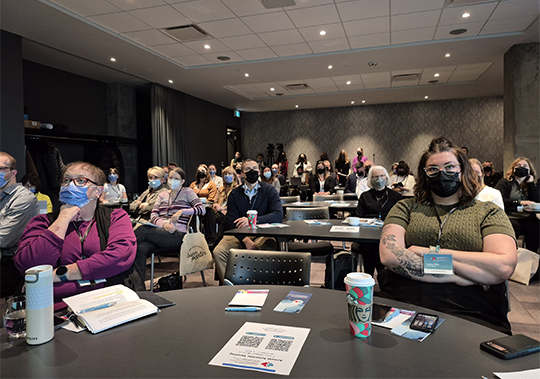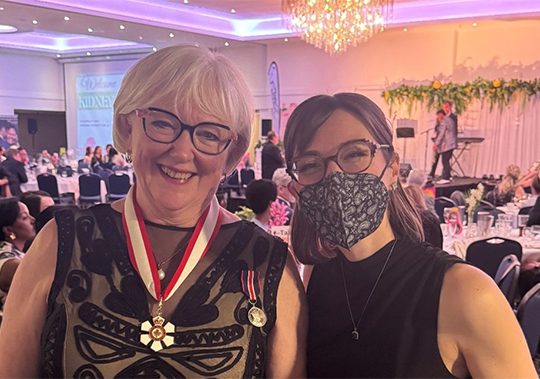Boosting the life-giving gift of organ and tissue donation through research

Organ and tissue donation saves lives, with more than 2,000 organ transplants performed in Canada each year. But there is a shortage of donors, and transplant recipients face hurdles including the possibility of rejecting the donated organ and severe side effects from anti-rejection medication.
Since 2013, the CIHR-funded Canadian Donation and Transplantation Research Program—a network of hundreds of researchers, health care providers, and patient, family, and donor partners—has been working to increase organ and tissue donation and improve the health of Canadians living with a transplant.
What do they have to show for ten plus years of work? It turns out, a lot!
One example is the team’s discovery that discarded thymuses (a small gland in the upper chest) from babies having heart surgery could be used as a source of T-cells for cellular therapies to treat graft vs host disease or to prevent transplant rejections.
“I'm a pediatric cardiologist,” says Dr. Lori West, the program’s Scientific Director, who was appointed as an Officer of the Order of Canada for her breakthrough research in infant heart transplantation. “I happen to know that these thymuses are discarded every day. But in working with cellular immunologists who say, ‘Gee, if only we had more of these T-cells to use for cell therapy’ the light bulb goes off.” This brand-new therapy is now entering clinical trials.
On top of novel research discoveries, the program has also influenced policy related to donation. Collaborating with Transplant Québec, the team co-hosted an international forum that recommended mandatory referral, a requirement that health care professionals report all potential organ donors to their organ donation organization, which ensures that every potential donor or their next-of-kin is given the chance to consider donation.

Thanks to the forum’s recommendation, mandatory referral is now the law in Alberta. “The direct application of research to this policy decision was a huge success,” says Dr. Patricia Gongal, the program’s Executive Director.
Researchers in the network were also able to pinpoint when death is truly irreversible, easing the concerns of potential donors worried about the certainty of death at the time of donation.
The program continues to find new ways to address the donor shortage and support the health of transplant recipients, with patient partners playing a central role. “They bring a real sense of urgency,” says Dr. West. “Their lived experiences are extremely informative, but they also bring their professional skills, their identities, their styles of working to our network.”
At a glance
Issue
Each year, hundreds of Canadians die waiting for organ and tissue transplants, and those lucky enough to receive a life-saving transplant often face health challenges for the rest of their lives.
Research
With CIHR funding, the Canadian Donation and Transplantation Research Program is finding ways to boost organ donation and improve the health of recipients.
- Date modified: